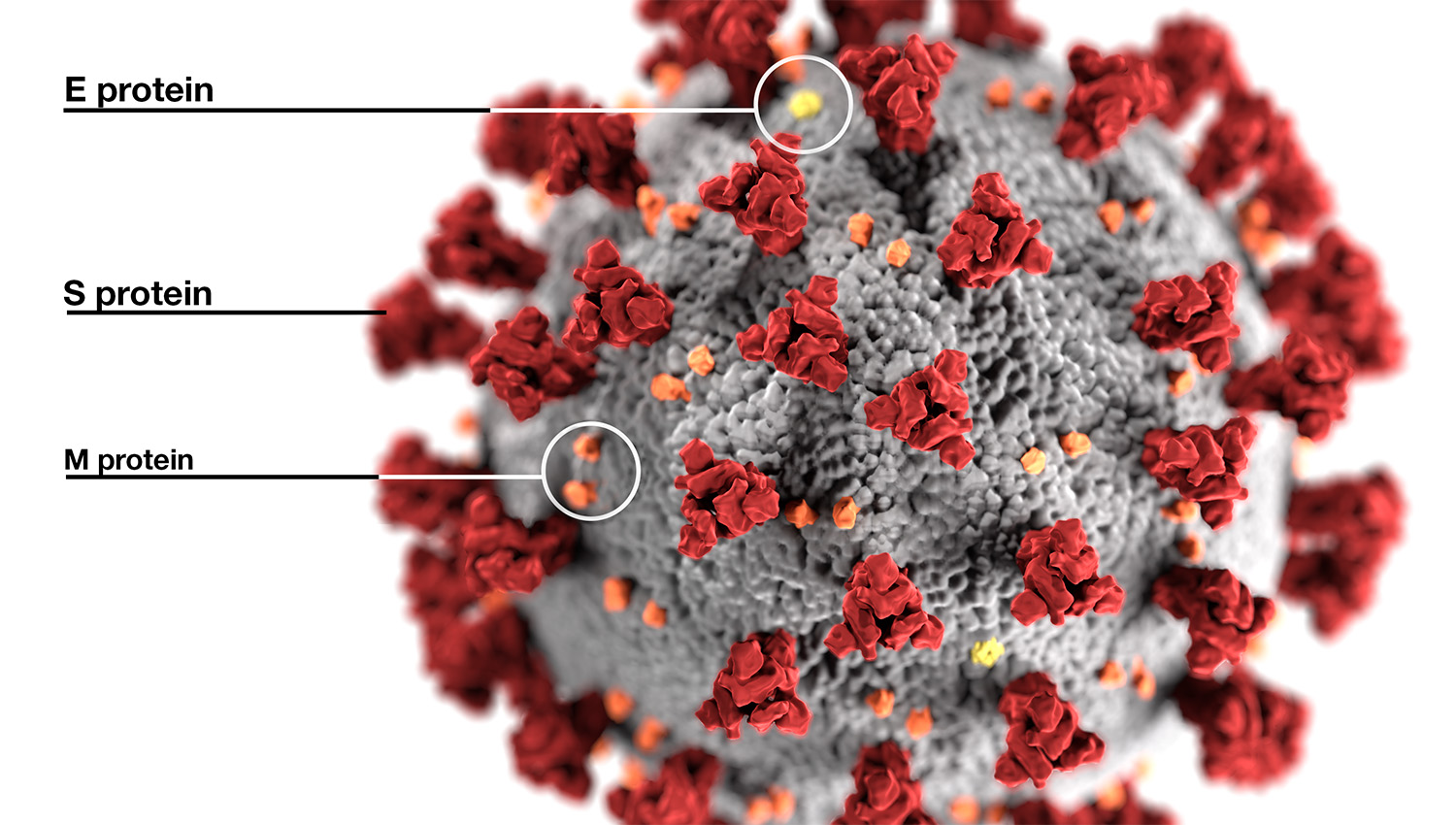While COVID-19, the disease caused by SARS-CoV-2, has brought much of the world to a standstill, it hasn’t stopped research at NC State.
Faculty and the staff at the university have pivoted from their customary research to study COVID-19, using their expertise in battling the pandemic. Their research has covered a large scope, from how the novel coronavirus can be effectively managed and analyzed to how it affects society’s food safety and supply chains.
Our researchers spoke, virtually, during NC State’s Research Week to share their progress.
Managing a Pandemic Efficiently and Equitably
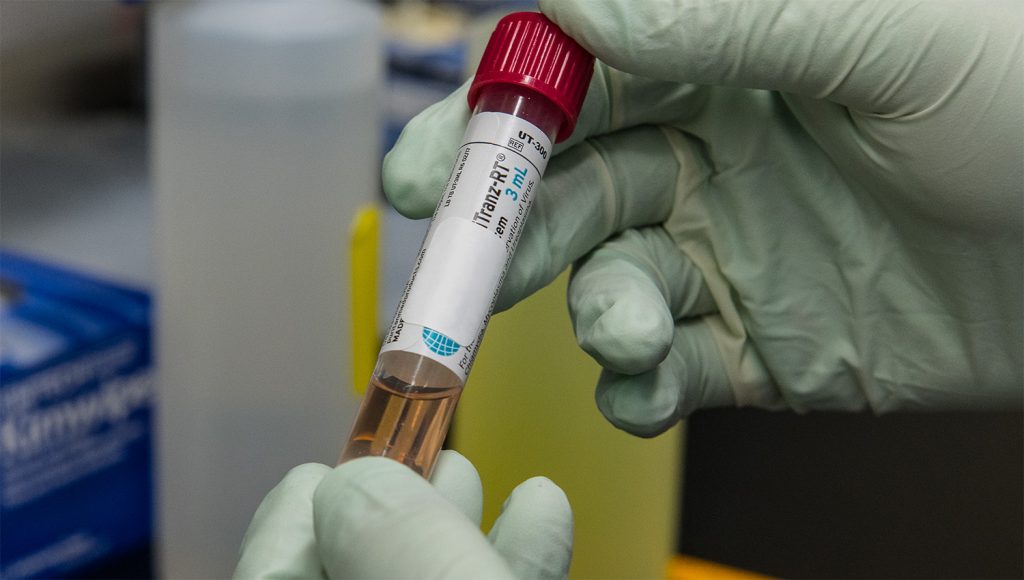
Julie Swann, head of the Department of Industrial and Systems Engineering, is studying how mathematical, analytical and computational skills can be applied to the complex logistics of managing a pandemic in a nation with 50 state health departments.
“The public health system in the United States is pretty complicated,” Swann said. “There are many players.”
Operation Warp Speed, which aims to produce and deliver 300 million doses of COVID-19 vaccines, is managed by the U.S. Department of Health and Human Services. The U.S. Centers for Disease Control and Prevention distributes interim vaccine guidance to state health departments. Vaccines are shipped from distribution centers to hospitals, pharmacies, local health departments and more.
In 2009, Swann was a science adviser for the H1N1 pandemic response at the CDC. As an industrial engineer, she examines how decisions can be made more efficiently — for example, in terms of cost, speed, efficacy and, importantly, equity.
Breaking Down the Test Kit Supply Chains
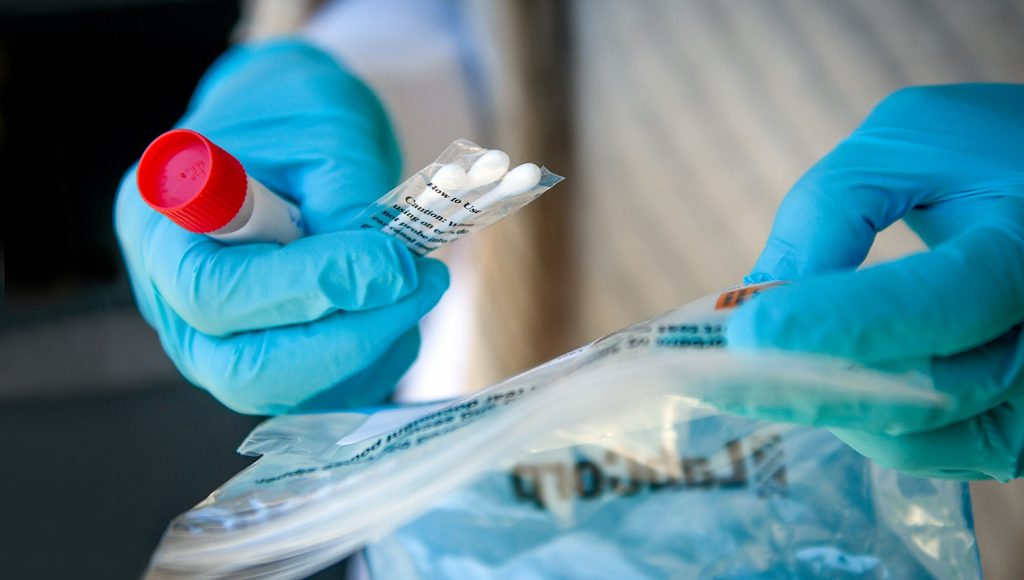
Robert Handfield, executive director of the Supply Chain Resource Cooperative and a distinguished professor of operations and supply chain management, is leading a team to develop a COVID-19 test kit supply chain model.
There have been shortages of components that make up test kits. During the COVID-19 pandemic, a shortage in plastic components limits the throughputs of testing platforms. An inability to quickly test a population quickly obscures the scope of a pandemic.
“We’ve learned the distribution of test kits is not a well-defined problem with an easy solution,” Handfield said. “There’s been shortages of test kits, and we know it generates its own set of supply chain challenges.”
He and his team examined how 3 million antigen tests could be distributed across North Carolina based on county-level priority measures, including the level of test positivity and the trend in reported cases of COVID-19. Their research is funded by the National Institute for Innovation in Manufacturing Biopharmaceuticals and the National Institute of Standards and Technology.
Intersecting Probiotics and Vaccines
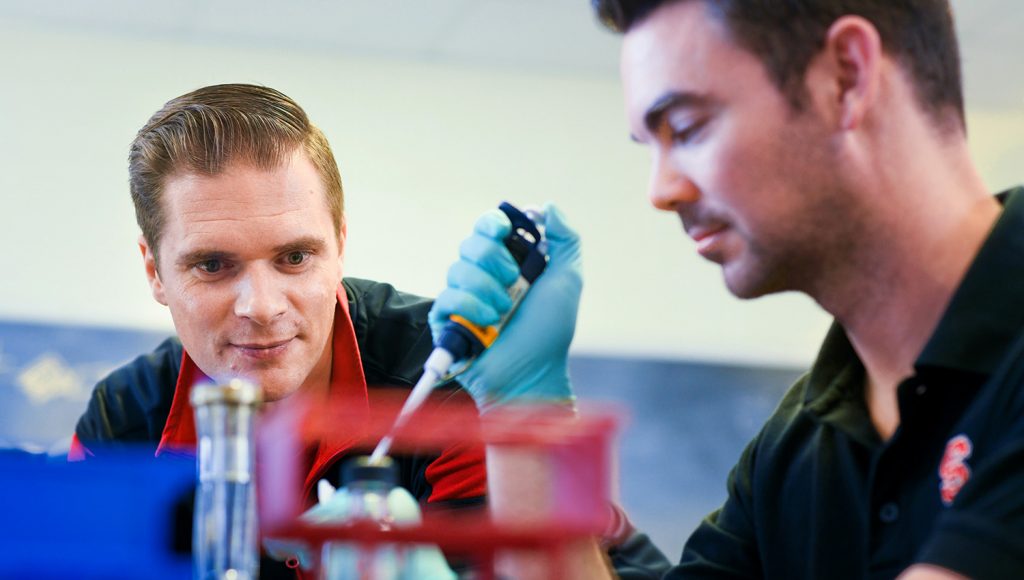
Rodolphe Barrangou is a professor of food science and the leader of NC State’s CRISPR lab, which researches probiotics and starter cultures to enhance food supply and human health.
His team has been working with probiotic bacteria to engineer mucosal vaccines. They were developing a rotavirus vaccine for a project funded by the National Institute of Health when the coronavirus pandemic hit. So, researchers pivoted to developing a COVID-19 vaccine.
This month, animal trials begin with multiple engineered probiotics with confirmed surface-expressed COVID-19 proteins.
“We are one of 600 groups in the world working on COVID-19 vaccine projects, and that is great because all we need is one in 600 to work,” Barrangou said.
Linking Environmental Chemicals and Vaccine Response
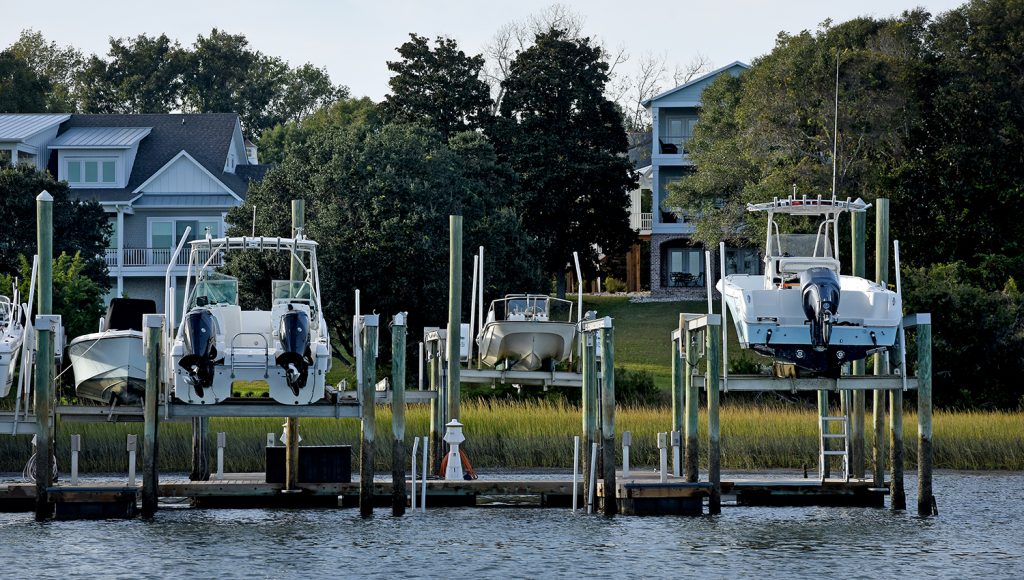
Jane Hoppin, a professor in the Department of Biological Sciences, researches how chemicals in the environment affect people’s health.
In the GenX Exposure Study, she looked at per- and polyfluoroalkyl substances (PFAS) — man-made chemicals found in many commercial household products — and their effect on people’s health in Wilmington, North Carolina, and other areas in the Lower Cape Fear region. In 2017, people in Wilmington had much higher exposure levels to PFAS because drinking water was contaminated.
Some people exposed to PFAS have reduced responses to vaccines. But because people are vaccinated against many diseases early in life, it’s difficult to look at exposures to novel chemicals.
Hoppin’s team will test the blood of 1,200 people in Wilmington, Fayetteville and Pittsboro to measure levels of PFAS and COVID antibodies. The team will repeat the tests in a year to assess changes and, if possible, the response to a COVID-19 vaccine.
New Research Projects
Several of our faculty members and staff have been awarded research projects related to COVID-19 from the National Science Foundation, the National Institute of Food and Agriculture and more. An updating list is available on the Research Development Office’s website.
